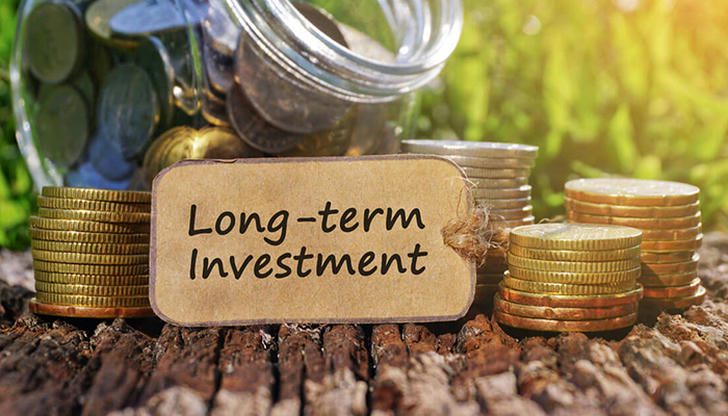Why Should You Stick to Long-Term Investing?

Before delving into long-term investing, it's crucial to understand what it entails. Grasping the essence of investing is paramount. Investors should have a clear understanding of what they are investing in and where the expected returns are coming from. Understanding whose money you are making and why they are willing to continuously generate profits for you is key to determining whether such gains are sustainable. This article will help you understand what long-term investing is and its benefits, aiding you in embarking on a long-term investment plan.

What is Long-Term Investing?
While many agree with the concept of long-term investing, interpretations of it vary widely. True long-term investing is based on a clear long-term logic or foresight.
First Misconception
Private equity products engaged in high-frequency trading are not necessarily short-term investments. If your investment is based on in-depth research into a high-frequency trading team's advantages in equipment, talent, etc., and you judge that their returns are long-term sustainable, such an investment can be considered long-term.
Conversely, just because a fund or private equity fund touts the concept of long-term investing doesn't mean it actually is one. In fact, many excellent active equity funds may significantly lag behind market indices at certain times due to having a clear stock-picking style. If investors choose to exit during these periods, such investments cannot be considered long-term. The correct approach might be to add to positions during these times and reduce them appropriately when performance peaks are being chased by the masses.
Second Misconception
Simply holding an investment product for a long time does not equate to long-term investing. For example, some investors may buy stock funds at market peaks and subsequently experience significant declines. Even if they become "long-term holders" of these funds, if the funds themselves do not exhibit consistently strong long-term performance, long-term holding becomes meaningless, and such behavior cannot be considered genuine long-term investing.
In summary, long-term investing is not just about the duration of holding but is a strategy based on a deep understanding of the investment object and far-sightedness. True long-term investing requires investors to have a profound understanding of their investment objects and accurate judgments of long-term market trends.

Why Stick to Long-Term Investing?
1.Long-term investing reduces trading costs.
Understanding the importance of long-term investing is crucial to avoiding unnecessary costs. In contrast to short-term trading, many stakeholders, including some investment service providers, often encourage investors to trade frequently, as this can generate substantial fees and commission income for them.
Frequent trading does not necessarily lead to higher returns, but it does ensure income for these service providers. Generally speaking, the individuals that retail investors often encounter during the investment process will try their best to narrate stories of making significant profits in the short term. In reality, this is merely to earn certain fees akin to purchasing lottery tickets.
In contrast, long-term investing is often more rational but less attention-grabbing, so individual investors rarely hear promotions about long-term investing, which makes them prone to falling into the trap of frequent trading.
Another advantage of long-term investing is its ability to effectively avoid the risk of making impulsive decisions due to short-term market fluctuations. Long-term investors typically have a deeper understanding of the market and stronger risk control capabilities. They are not swayed by short-term market fluctuations and can focus more on the essence and long-term value of their investments.
In conclusion, long-term investing not only reduces unnecessary trading costs but also improves the overall quality and returns of investments. This investment approach encourages investors to focus more on fundamental analysis and long-term trends rather than being disrupted by short-term market noise.
2.Long-term investors are less psychologically stressed.
For various reasons, the proportion of investors who truly adhere to long-term investing is small. Consequently, assets with long-term investment opportunities tend to be inexpensive, and competition is less intense.
Long-term investors with a proper mindset are often in good spirits, and eager to share and exchange ideas with like-minded friends. Conversely, those in high-frequency or quantitative trading fields must be extremely cautious when communicating with peers to avoid disclosing strategy secrets.
More time can be devoted to reading, socializing, gardening, raising children, and traveling. Ambitious individuals can also achieve success in endeavors beyond investment.
While speculators ponder how to make a profit in a matter of hours, long-term investors allocate more time to reading, socializing, gardening, and traveling, gaining greater happiness and fulfillment in life.
3.Higher certainty in long-term investment
This certainty mainly stems from two factors: fundamentals (i.e., expected cash flows of companies) and valuation. Fundamentals are generally stable and can be predicted through in-depth research. Valuation, on the other hand, exhibits significant short-term volatility and is difficult to predict accurately.
Fortunately, although valuation fluctuations may be dramatic in the short term, they are constrained by market highs and lows and do not deviate from this range for extended periods. Therefore, as the investment duration lengthens, the impact of valuation fluctuations on investment returns gradually diminishes, exhibiting a decreasing trend year by year.
Meanwhile, the economic value created by high-quality companies does not decrease with the extension of the investment period. In the long run, the ongoing operating value of companies has a far greater impact on investment returns than valuation fluctuations.
